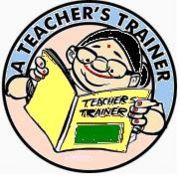PROGRAMME EVALUATION
PROGRAMME EVALUATION
This section helps you understand about the process and scope of programme evaluation
|
Programme can be a small one or a big one. It can be an institutional or taken up by the department of that institution. The evaluation of the progtramme depends upon the type of the programme and evaluation can be process evaluation or product evaluation. Product evaluation is rather easy, as something that has been worked out is available. But process evaluation is differnet from situation to situation. |
Programme evaluation can have general steps like this.
- Identification of need of the programme and floating it.
- Planning-date, venue, resource persons, financial requirement etc.,
- Implementation of the programme/.
- Reporting, which should be generally done by the person concerned.
- Collecting feed back about the programme, sending the same to concerned persons.
We can take up an example of an in-service programme, which your DIET is conducting. The need for the programme is decided by the wing head or the principal in consultation with teacher educators or primary teachers. The wing head can also arrive at the title of the programme by referring to the feed back given in the previous programms or the need analysis done by the DIET.
STEP-1
The in-service programme can be held in your institution, but the dates are to be fixed up keeping in mind the holidays, important events that are taking place, strikes if any, already called for etc., A letter is to be sent to all the head masters to depute a staff member to the programme. The principla or the wing head will have to visualise various sessions and fix up suitable resource persons. This requires discussion with colleagues, friends and recalling the articles written by the resource persons etc., Separate letter has to be sent to hin/her requesting to make it convenient to attend the programme, to give a lecture or conduct a work shop etc., Financial outlay must be discussed with the accounts officer, the details of TA, DA etc., that can be given to participants, resource persons, the remuneration that can be paid etc., The place where the participants can stay has to be fixed early to avoid dissappointments.
STEP-2
The in-service programme has to inaugurated if required, otherwise it can be avoided completely. The wing head or the principal will have to telephone the resource persons the previous day itself, to remind them about the next days programme. The principal or the wing head must be present for all the sessions. He/she should see to it that each resource person is properly introduced and thanked profusely at the end. He/she must arrange for the disbursement of TA and DA at the end of the programme.
STEP-3
The wing head or the principal will have appointed a rappoteer to take down the main points in the lectures of the discussions that were held. He/she will take the help of rappoteer and prepare a report. The report will have to be photo copied and sent to the concerned superiors like Director, Joint-director etc.,
STEP-4
In the last function collection of feed back from the participants may be attmepted. It may be through questionnaires or oral ones. The participants will also mention the type of the programmes they need in the future. This will help the principal in visualising the next programme. Normally follow up is missing in all the in-service programmes. The partcipants will not be asked as to what they did with the idea and whether they are practicising it or not etc.,
STEP-5
Programme evaluation can be done by an outsider or the participant using this rating scale.
| Sl. No. | Statement | Very Well | Satisfactory | Not Much |
|---|---|---|---|---|
| 1 | Was the title of the programme arrived at by discussing
it with the colleagues? |
|||
| 2 | Was the title topical enough? | |||
| 3 | Was every aspect taken care of and attended to? | |||
| 4 | Were the resource persons identified and sent information? | |||
| 5 | Were the finances arranged and kept ready? | |||
| 6 | Did the sessions go on systematically? | |||
| 7 | Were there any difficulties with respect to RPs? | |||
| 8 | Were they good speakers? | |||
| 9 | Did they come well prepared with necessary transparencies
CDs etc.,? |
|||
| 10 | Was the report prepared well in time? | |||
| 11 | Was it written well comprising all sessions, aspects
of arrangement etc.,? |
|||
| 12 | Were the feed back collected though questionnaires or
in oral fashion? (tick the right one) |
|||
| 13 | Was the report discussed with the staff the department? |
